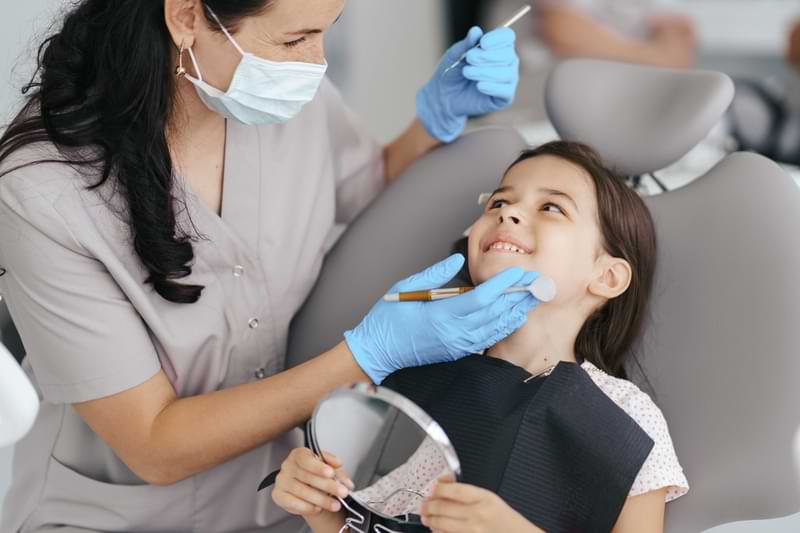
The teenage years are a time of rapid growth and transformation—not just emotionally and physically, but also in terms of oral health. As children transition into adolescence, their dental needs evolve, often bringing new challenges that require careful attention and timely intervention. Understanding these dental issues early on can help teens maintain a healthy smile for years to come.
The Impact of Growth and Hormones
One of the primary reasons teens face dental issues is due to hormonal changes that affect the entire body, including the mouth. Increased hormone levels during puberty can lead to heightened sensitivity in the gums, making them more susceptible to inflammation and infection. This can lead to gingivitis, an early form of gum disease characterized by red, swollen, and bleeding gums.
Teens who wear braces or retainers are especially prone to plaque buildup around brackets and wires, making it more difficult to keep their teeth and gums clean. Regular brushing, flossing, and professional dental cleanings become even more important during these years.
Common Dental Problems in Teens
Several dental challenges are particularly common among teenagers. Recognizing and addressing them early can prevent more serious issues in the future.
1. Cavities and Tooth Decay
Despite increased awareness of dental hygiene, many teens still develop cavities due to poor brushing habits, frequent snacking, and sugary drinks. Soda, energy drinks, and candy are common in a teen’s diet and are notorious for feeding decay-causing bacteria. Educating teens on making healthier food and drink choices can go a long way in preventing tooth decay.
2. Wisdom Teeth Woes
Wisdom teeth, or third molars, typically start to erupt between the ages of 17 and 25. For many teens, these teeth can cause pain, crowd existing teeth, or become impacted (trapped beneath the gum line). Dentists often monitor their development through X-rays and may recommend removal before complications arise.
3. Orthodontic Issues
Misaligned teeth, crowding, overbites, and underbites are common issues addressed during the teen years through orthodontic treatment. The placement of orthodontic brackets, whether with traditional braces or other appliances, plays a key role in gradually guiding teeth into proper alignment.
While braces and aligners can cause temporary discomfort and demand diligent care, they significantly improve both the function and appearance of a teen’s smile. Proper alignment also makes it easier to maintain good oral hygiene, leading to healthier teeth and gums in the long run.
4. Sports Injuries
Teens involved in sports are at higher risk of dental injuries, such as chipped, broken, or knocked-out teeth. Mouthguards are a simple and effective way to protect the teeth and mouth from impact during contact sports. Encouraging teens to wear mouthguards can prevent painful and costly dental emergencies.
5. Poor Oral Hygiene Habits
The combination of busy schedules, late nights, and increased independence can lead some teens to neglect their dental routines. Skipping brushing or flossing, forgetting dental appointments, or underestimating the importance of oral hygiene can result in serious consequences. Establishing good habits early and reinforcing them with routine check-ups helps instill a sense of responsibility in teens.
Mental Health and Dental Health Connection
Teenagers often experience stress, anxiety, or self-esteem issues, all of which can impact oral health. Stress-related habits like teeth grinding (bruxism) are more common in teens than many parents realize and can lead to jaw pain, headaches, and worn enamel. Additionally, body image concerns can drive behaviors like disordered eating, which may result in acid erosion and damage to the teeth.
Open communication and support from parents, teachers, and healthcare providers are crucial. Addressing emotional well-being alongside physical health can create a more holistic approach to dental care.
Tips for Parents and Teens
- Establish Routine Care: Encourage brushing twice a day with fluoride toothpaste and daily flossing.
- Visit the Dentist Regularly: Bi-annual checkups help catch problems early and keep teens on track.
- Promote a Balanced Diet: Reduce sugar intake and encourage calcium-rich foods like dairy, leafy greens, and nuts.
- Educate About Risks: Talk to teens about how habits like vaping, smoking, and poor diet choices affect their oral health.
- Be Supportive: A positive attitude toward dental care can influence teens to take it more seriously.
Looking Ahead: Lifelong Habits Start Now
The teenage years are a crucial time for shaping lifelong dental habits. With the right guidance, awareness, and routine, teens can avoid many common oral health problems and enjoy a confident, healthy smile into adulthood. By understanding their unique dental needs and challenges, parents and caregivers can be powerful allies in helping teens protect and develop their smiles.
